








This guide aims to assist Claremont Sixth Form students in effectively navigating information on university courses and creating competitive applications. Additionally, it is intended for Claremont parents who wish to provide support for their children through the application process..
Thisguidelooksat:
● How to Decide What to Study
● How to Decide Where to Study
● Claremont Futures Week
● Completing Your UCAS Application
● Timeline for Applications
● Receiving and Monitoring Offers
● Choosing Your Place
● Results Day
● Sixth Form Team - Contact Details
This document is relevant for applications to start a university course in the autumn of 2024.
Claremont Sixth Form Team April 2023
This is your starting point. For some students, the choice of subject is obvious, and may have been for some while, but other students find it harder to decide. There are many different courses available, covering subjects which you may not even have thought about.
Listed below are some ways you can narrow down the choice of what subjects might be best for you. Remember, in some cases, choices of subjects can dictate future career opportunities, so it is important to do your research before coming to a decision.
A good starting point, to help choose a course, is to use your Unifrog account. All Claremont sixth form students have their own personal Unifrog account. In addition, the Claremont Sixth Form team can provide parents with their own Unifrog account, so they can support their son/daughter with their research. Please get in touch with us if you would like a parental Unifrog account (contact details are at the back of this document).
Unifrog’s comprehensive psychometric testing is an enjoyable way to explore your interests, strengths, and areas for development, and to see how results relate to possible careers and subject choices. This helps to build a foundation to then conduct focused careers research in the areas that most interest you.
Unifrog has four different personality "quizzes" which will suggest subject and career suggestions. The four quizzes are:

- interests profile - based on John Holland's theory of personality and job choices
- personality profile - based on the theory behind the Myers-Briggs personality framework
- work environments profile - based on the ONET ‘Work contexts’, and gets students to consider different work settings, activities, and situations to get a sense of what you would be most happy with
- skills profile - asks students to self-evaluate their level on 22 different skills by considering specific scenarios where they would need to use these skills
To find the quizzes, log in to your unifrog account and scroll down until you find this window.
Once you have completed the quizzes, you will be provided with tailored results. As part of your quiz results, you are directed towards the Careers and Subject library profiles in Unifrog, where you can carry on your research.
The Unifrog Subjects Library helps you explore university level subjects but has lots of practical advice for all students, even those not considering university as a Post-18 option. This section also includes ideas for extra curricula extension in these subjects and sample personal statements to help apply for courses in specific subject areas.
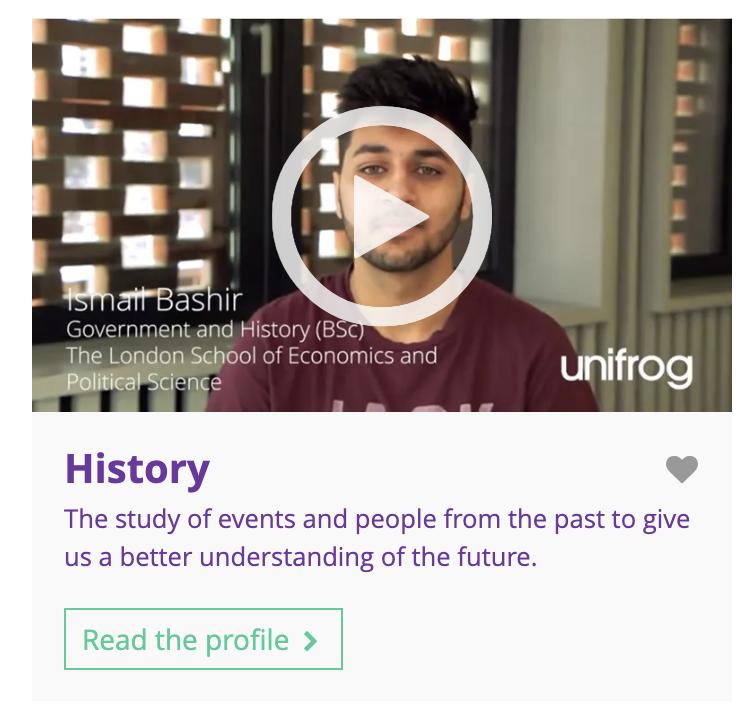
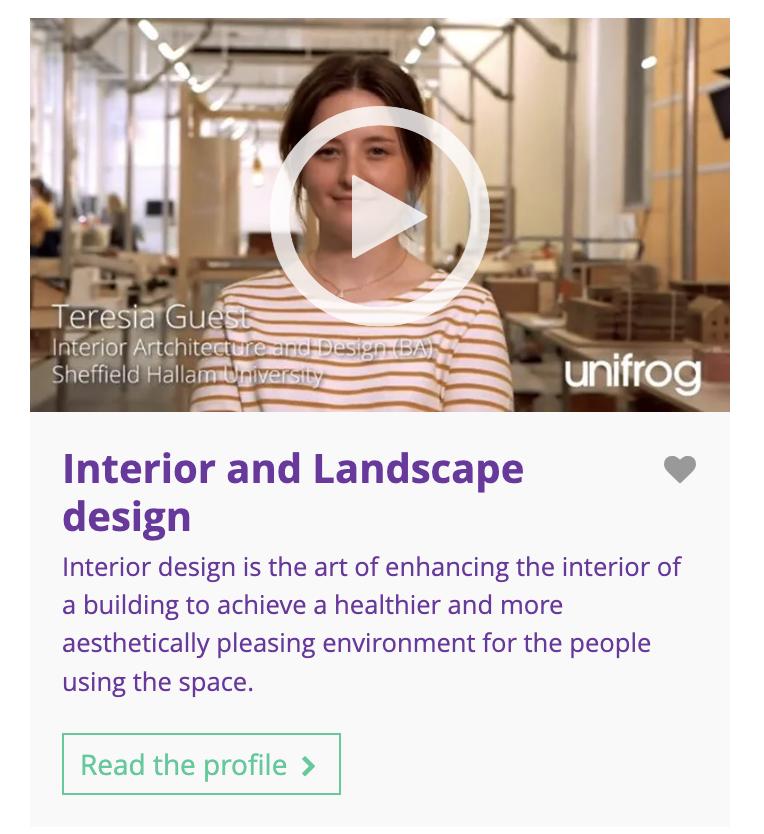
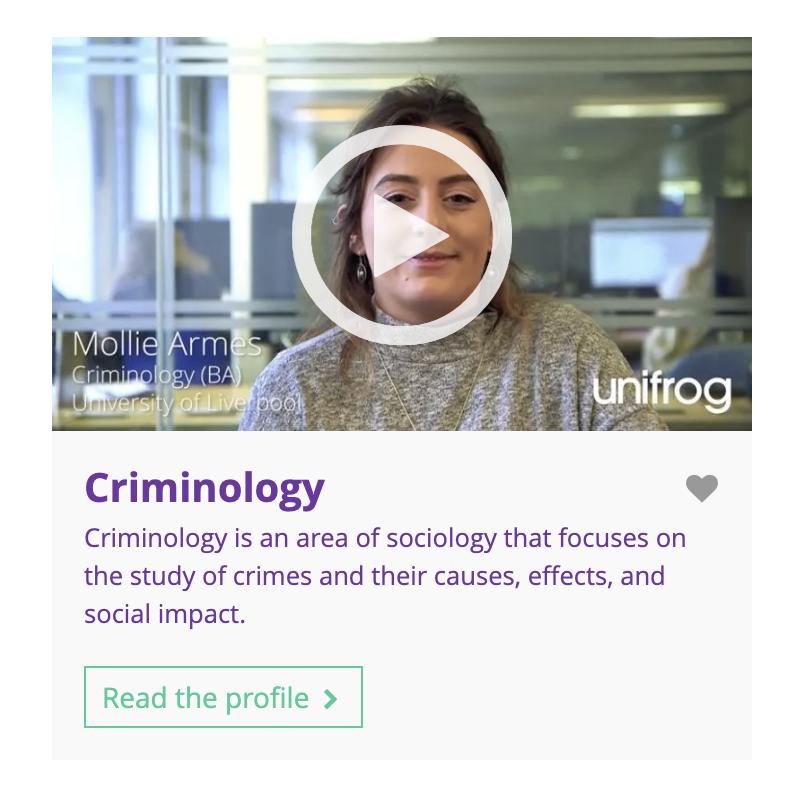
Open the Subjects library in the "Exploring Opportunities" section by clicking the ‘Go to tool’. A wide variety of different subjects are included (see below for an example).
In addition the Careers library helps you see what future pathways may be open to you, given your subject choice.
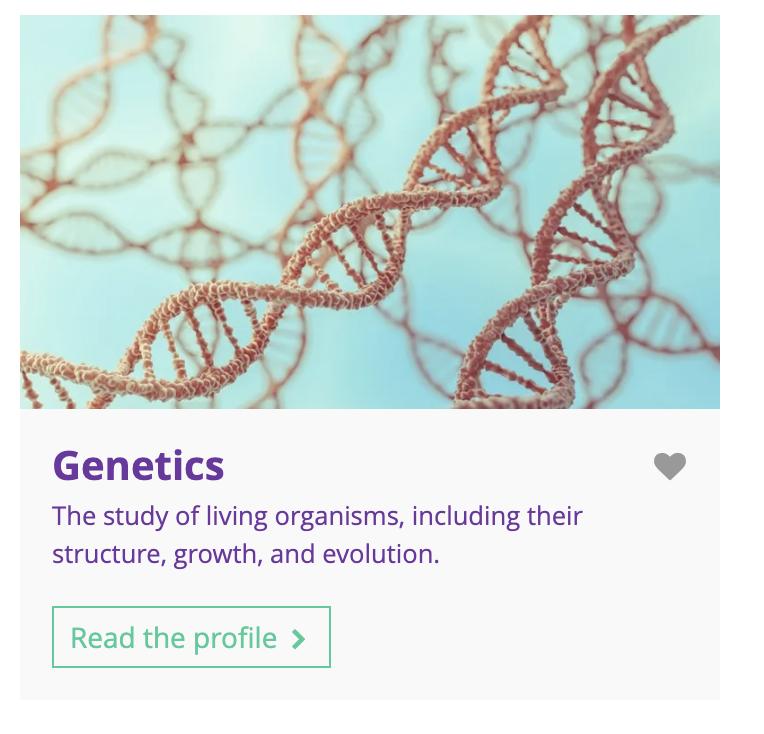
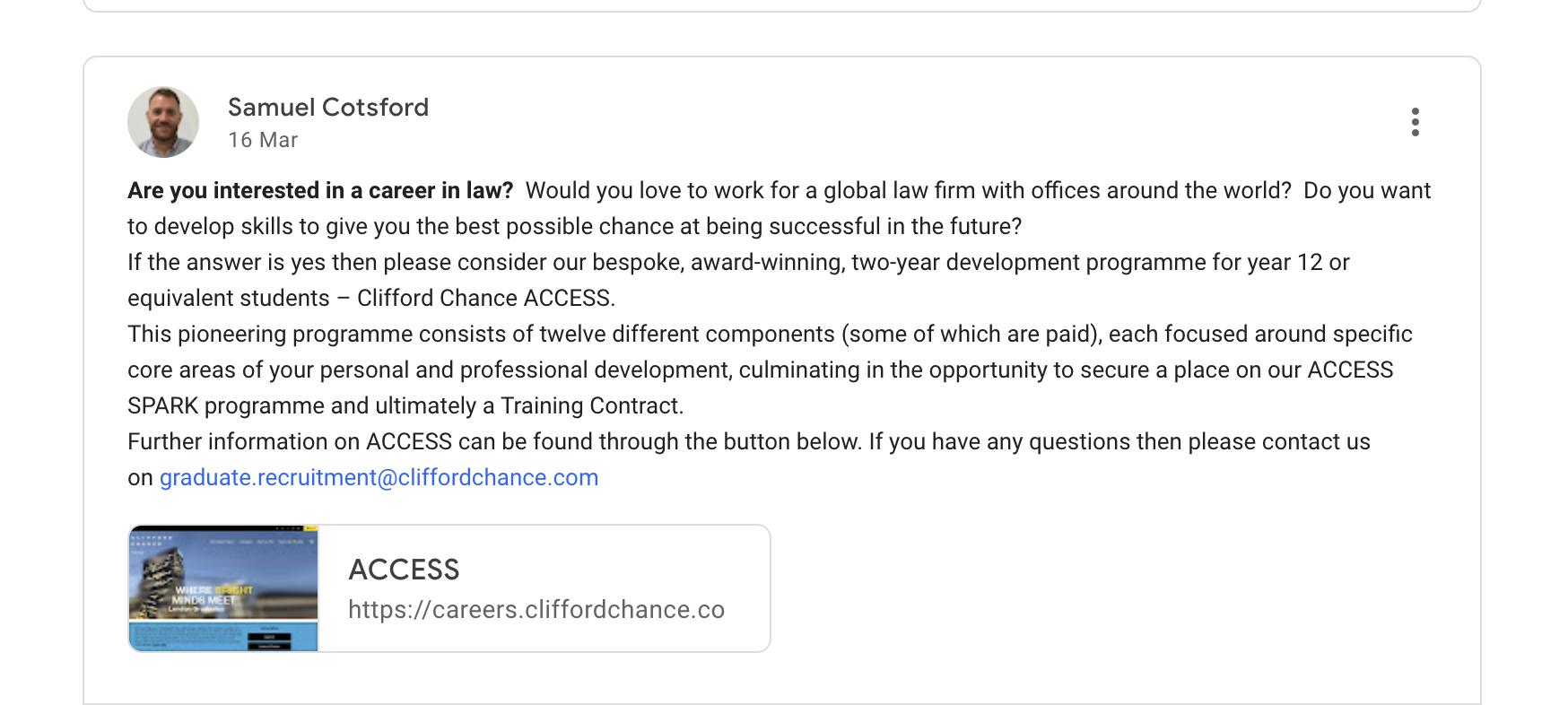

Additionally, the Claremont Careers/ UCAS Google Classroom lists weekly discovery opportunities, including careers and internship opportunities, and local work experience placements.
New opportunities are posted weekly and cover a huge range of different fields. Recent opportunities for Claremont students have included: accounting apprenticeships with PWC, KPMG and Deloitte, a fashion marketing webinar, Ministry of Defence webinars about careers in the UK government civil service; a financial careers webinar from Zurich and Legal & General; a webinar about careers in horse racing; a webinar about working in construction/ infrastructure; an engineering opportunity with Dyson and a marketing opportunity with British Airways. The list goes on, but you can see the variety on offer
There is a wealth of information here - please see our Head of Futures if you have questions!
You need to sign up to the Claremont Careers and UCAS Google Classroom to access this information. Please speak to your form tutor if you need help in doing this.
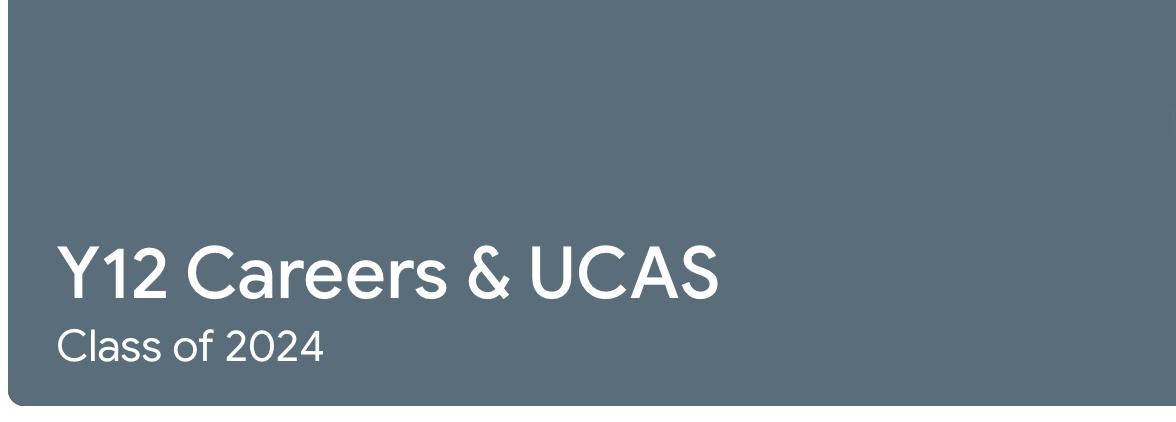
There are over 35,000 different UK university courses. Choosing between these can be a daunting prospect. We set out below some suggestions to help you navigate through all the different course offerings.
Students wishing to apply to international universities are advised to speak early to our head of international applications (contact details at the back of the pack). International institutions have different timescales and requirements and therefore it is important you let us know by the summer term of Year 12 if this is an option you are considering.
The Unifrog UK University shortlisting tool makes it easy to compare different courses and universities and decide which ones to apply to. You can search for courses that match up to ten subjects at a time and filter by entry requirements, as well as other factors that are important to you, for example, distance from home, type of course, type of university Course and university rankings are included for reference, so you can see how external organisations rank the courses that you are considering.
The shortlisting tool also compares the entry requirements of every course, with the grades you are likely to get, to determine whether each course is an "aspirational", "solid", or "safe" application for you.
All year 12 students will have a UCAS account set up for them as part of Futures week which is held in June of the summer term. This account is needed to apply to university and it provides the means for universities to communicate with students.
In addition, the website has a lot of information on the different courses, and other information, for example the dates of open days and other university events.
As part of Futures Week (see below), we offer all Year 12 students the opportunity to visit the UCAS Convention, which is an in person event, where you can meet university representatives and talk to them directly about course choices and what they offer in terms of student experience. The day also includes a number of talks and other interactive opportunities.
The HEAP guide is an independent reference book with a comprehensive listing of all UK courses. The guide includes full subject-by-subject degree course guide, as well as admissions details for every UK university and college, and guidance on the UCAS application process. The guide is produced annually and the latest copy is available to borrow from the Claremont careers office. We also keep up-to-date course rankings from The Times, the Guardian and other publications. Good for those who prefer to work with resources in print rather than via computer screens!
Your form tutor is a key port of call for advice regarding your university application. In addition, our Head of Futures is available for individual appointments with students and their parents on request to help talk through the options available and make decisions as to the appropriate pathway Please contact our Head of Futures directly
if you would like to set up an appointment, either in person or via video call. Subject teachers can also be very helpful in recommending and helping you review the options available. For example, courses within the same subject umbrella can differ significantly, and students may be unclear initially as to distinguishing features, for example choosing between an Economics BA course versus an Economics BSc course. We are always happy to help, so please do not hesitate to ask.
An important step in finalising your course shortlist is to visit the university. All universities publish open day timings, which tend to be in the summer of year 12 and the autumn term of year 13. It is very hard to get "a feel" for a place until you go and see it in person and so we encourage you to sign up for these. For those not able to travel, most universities offer virtual open days and these can be appropriate substitutes for attending in person. Most universities will also invite students who apply to them, and to whom they make an offer, to "Offer holder open days." Again, students have in the past found these events informative in helping make decisions.

In the summer term of Year 12 all Claremont students are "off timetable" for a week for Futures Week. This is a busy week of activities, designed to get you up and running with your university application.
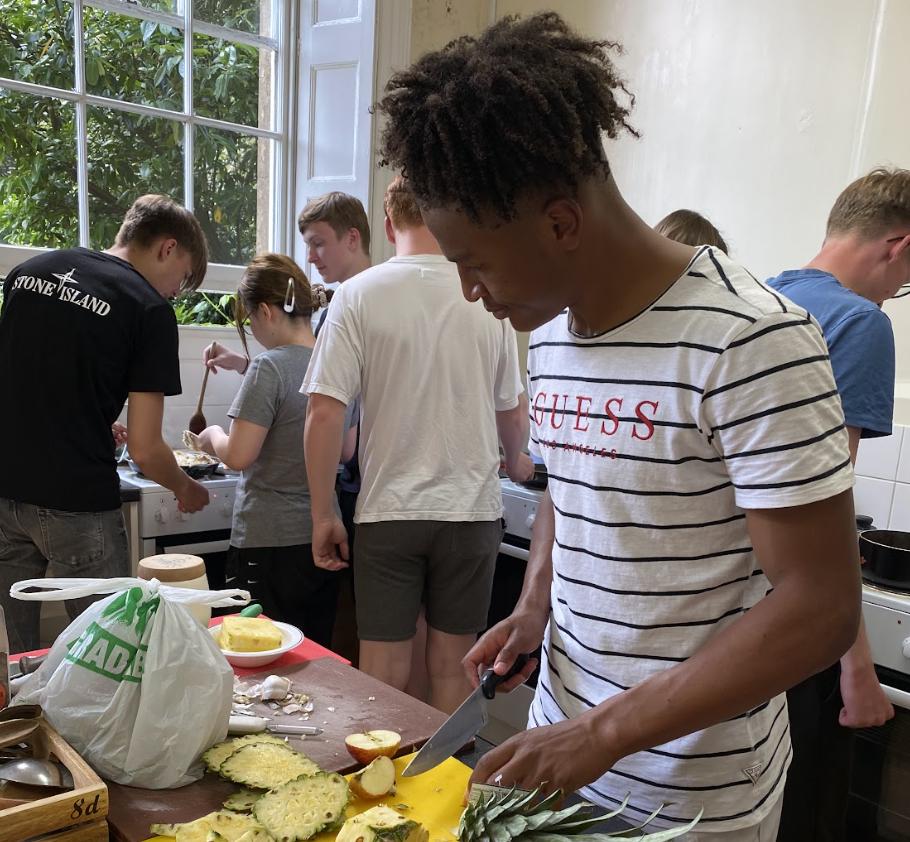


We organise a wide range of activities including personal statement workshops; ideas for extending subject knowledge outside the classroom; planning a gap year; applying for an apprenticeship; interview skills; life skills, including cooking on a budget, car maintenance and first aid for students. We welcome external speakers from the universities and different careers, and we visit the UCAS discovery conference. There will also be team building activities and an employability workshop run by external speakers. By the end of the week all students will have set up UCAS accounts and started completing key information.
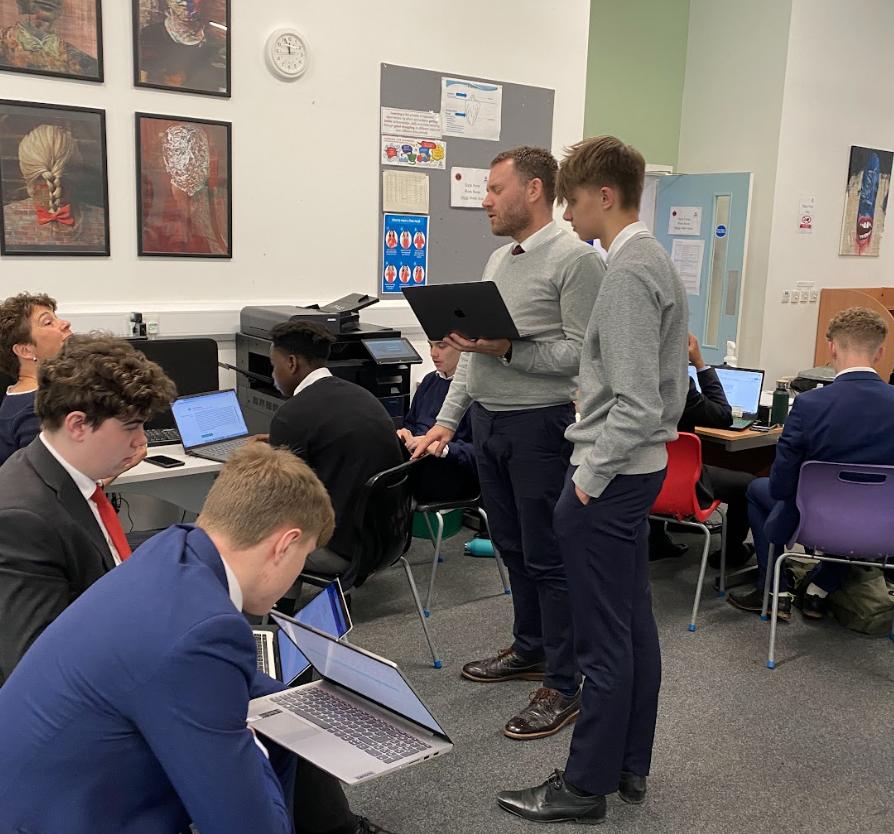 Personal statement preparation
Employability skills session
Cooking on a budget
Car maintenance
Personal statement preparation
Employability skills session
Cooking on a budget
Car maintenance
You complete your application online, using your UCAS account. There are a number of sections that have to be filled in carefully by each student. Help will be on hand to assist with this at school, but some key points are included below for your information.
Within the Contact and Residency section, it is important to highlight that you are allowed to authorise an additional contact who can speak to the universities on your behalf. It is up to the student who you choose, and many put a parent here. We alternatively recommend nominating Sam Cotsford (our Head of Futures) who then can speak on the student’s behalf directly to universities if required.
The Residency section also needs some careful consideration; the school cannot advise on this, but this section helps universities determine fee status, namely, home or international. Universities will require additional information to determine the student's fee status in due course and will email directly with their requests. You also need to input an email address, which the university will use to contact you. It is best to use a personal email address as the Claremont one is cancelled around 6 months after leaving school, so, if you defer your application, it will cease to be valid.
Universities use the English Language section to determine a student’s English proficiency This is required both for academic and visa purposes. If a student has a GCSE or IGCSE in English Language at grade 4 or above, then this is usually sufficient for the majority of courses. More competitive institutions will require a higher grade, however For those students who did not study GCSEs or IGCSEs, they will need to undertake an English proficiency test to the required standard prior to leaving Claremont. The school provides full individual support with regards to the student’s English pathway Please note that an IGCSE in First Language English is not usually sufficient for university purposes.
UK domiciled students should select 02 UK and the county of the home address, which will allow them to apply for UK government student finance. Alternatively, you can select Private Finance but this confirms that you will pay all fees in full through private funds. This is the same option that international students would select.
The More About You section is where students include full details of any special educational needs that they have and any additional requirements relating to assessments, for example, extra time or rest breaks.
Students use this section to detail their previous qualifications. You need to include exam dates, grades and the exam board for all GCSEs/IGCSEs. For those who studied at Claremont, we will have a copy of these details but for any other student, it is important that they obtain this information. We recommend bringing in copies of any exam certificates during Futures Week so we can make copies and use the correct information within the UCAS application. Many universities will require students to bring their exam certificates when they enrol at the start of their course.
Current qualifications refer to those the student is currently studying at Claremont You show the grades as "pending" The school formally predicts expected final grades in October of Year 13 and these are communicated both to students and parents via our school portal Predicted grades are based on a range of information, including the student's results in our school end of year summer exams in Year 12
The Employment section is optional but you can use this section to give details of any part time jobs which you have This section is optional
You should use this section to detail extra curricular activities that you have undertaken to prepare for university study Examples could include MOOCS (Massive Online Open Courses, found via Unifrog) and any other extension opportunities, such as university summer schools Again, this section is optional
The Personal Statement will remain in its current format for the current cycle, but we expect this to change from the following year onwards Typically, this is the section that students find the most challenging and takes up the majority of time overall in preparing the application This is the section where you, the student, explain to the university why they should accept you on their course Only one personal statement can be submitted, to support all five of the courses which you have applied to The school provides full and comprehensive guidance on how to tackle the Personal Statement and it is a requirement the student has a first draft complete when they first return from the summer holiday They should submit the draft via Unifrog, whereby their tutor can give them feedback, also via Unifrog The Personal Statement should be no more than 4,000 characters (including spaces) and should explain why you should be selected to join the course Typically a Personal Statement should be 80% focused on course suitability, as opposed to general skills and extracurricular activities It should be evidence based, for example, the activities you have undertaken to prepare you for university study, for example, books, authors, documentaries you have read/watched and how this has helped you decide on your selected course
You use this selection to select your university and course You can choose up to five different courses (four for medicine, plus a backup non-medicine course, e g biomedical sciences) When choosing courses, you need to be mindful of your predicted grades In our experience, students who apply for courses which require grades in excess of the predicted grades, are rejected automatically This is universally true for Russell Group universities in particular We recommend that you select no more than one aspirational choice, that should be within one grade of your predicted grades Three choices should be within the region of your predicted grades and one should be under your predicted grades You also use this section to specify which year you want to start your course (year 1 or Foundation) and whether you want to live on or off campus
Course choice should be finalised in conjunction with your form tutor and the Sixth Form team Our aim is for all our students to make aspirational but realistic choices, which maximises opportunities going forward
The Predicted Grades and Reference section are completed by the school As mentioned, students and parents are notified of predicted grades in October via our school portal These are evidence based and will typically be based on end of year exam performance in the summer term of Year 12
The timeline below shows the key dates that you need to be aware of for the 2024 UCAS application cycle. Please note your application is sent off by the school. We send off applications on a "First come First served" basis. Each application is comprehensively checked prior to despatch, which is a time consuming process. The sooner you get your completed application to us, the sooner it will be sent off.
2nd May 2023
UCAS starts to display the available 2024 courses. Unifrog is updated to reflect this.
5th June - 9th June 2023
Futures Week
All students set up their personal UCAS account, and start completing their applications
5th September 2023 First date that applications can be submitted by Claremont school via UCAS.
Deadline for notifying Claremont that you wish to make an "early application" for Oxbridge, medicine, dentistry or veterinary science courses.
6th October 2023
Claremont UCAS grades published
These are the predicted grades that we tell the universities. These grades are teacher predictions, based on the results of the Year 12 end of Year exams
16th October 2023
UCAS early application deadline Oxbridge, Medicine, Dentistry, Veterinary science
1st December 2023
Claremont school final deadline for receiving student applications
School deadline for all students wishing to apply for 2024 UK university admission to have the completed application, including finalised personal statement, with the Head of Futures. We do not guarantee that applications received by us after this date will be processed by the UCAS equal consideration date.
31st January 2024
Equal consideration date
Closing date for UCAS applications. Applications received by UCAS up to this time will receive "equal consideration"i.e. are treated on equal footing. Applications received by UCAS after this time will still be considered by universities, but courses may, by this stage, be full/ places no longer available.
All changes to the status of your application, in other words if you receive an offer or are not offered a place by a university, are shown on each student's UCAS Track account. Students can access UCAS Track from their phone or computer, using the log on details set up in Futures Week. Updates to UCAS track will be notified to students via the email address that they have registered with UCAS as part of their application.
Once your application has been submitted by the school, it is the responsibility of the student to check emails for updates on offers or other information requested by the universities to which applications have been made. The school has access to the headline status of offers but we are not copied into communication between the university and the applicant. Invitations for interviews or requests for further information will go directly from the university to the student. Requests for information are likely to have fixed response deadlines. Failure to meet these deadlines is likely to result in a university declining to offer you a place. It is therefore important to act promptly where a request for information is received.
Once your application has been submitted by the school, it is the responsibility of the student to check emails for updates on offers or other information requested by the universities to which applications have been made. The school has access to the headline status of offers but we are not copied into communication between the university and the applicant. Invitations for interviews or requests for further information will go directly from the university to the student. Requests for information are likely to have fixed response deadlines. Failure to meet these deadlines is likely to result in a university declining to offer you a place. It is therefore important to act promptly where a request for information is received.
A common reason for receiving requests for information is where you are applying for a creative course, for example Art & Design, Photography, Film or Sound Production, Media, Design Technology, Acting, Dance, Illustration, Graphic Design. In these cases, students are generally asked to submit a portfolio of their work within a timescale, often 14 or 28 days or attend an audition/ interview If you are considering applying for a creative course, it is important you start working on your portfolio in advance of submitting your application. Each different institution will have different requirements as to their portfolio, but it is usually required to be submitted in digital format.
Students applying to UK universities, who are not UK resident, or who have not been UK resident in the past three years, are also likely to receive requests for visa, English language qualification and financial information.
Students may also receive an email request with an invitation to attend an interview Most UCAS offers are made without an interview, with the following exceptions. Applicants to Oxbridge may be invited to an interview In addition, applications to medicine, dentistry, veterinary medicine and other medicine related courses, e.g. pharmacy, may be invited to interview In addition, applicants for creative subjects may be asked to attend an interview to discuss their portfolio of work or to take part in an audition.
An important development is that universities are increasingly communicating via their own organisation portals. Where this is the case, you will receive an email invitation to register for the portal. As above, Claremont will not have access to the university portal.
The overall message is that, once your application is submitted, you should be monitoring your emails regularly for updates.
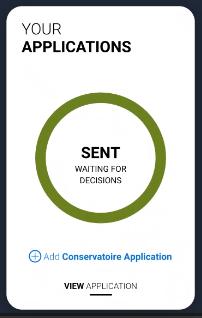
Once you have decisions from all of your choices, you can hold a maximum of two offers:
1. one as a ‘firm’ acceptance. This is your first choice.
2. the other as an ‘insurance’ acceptance. This acts as a back-up if you do not end up meeting the entry requirements for your ‘firm’ choice.
You must then decline any remaining offers and these offers will drop off entirely from your UCAS application (i.e. you cannot subsequently choose to take these offers up in future).
The deadline for making your firm and insurance decisions will depend upon when you receive your last response, but generally is around the first week of June. The process of selecting a Firm and Insurance choice is done by the students through their UCAS accounts.
Your firm choice should generally be aspirational but within your predicted grade range, to a maximum of one grade above predicted grades. Insurance should be at least one grade below predicted range.
It is important to note that students will automatically go to their insurance choice if they do not meet the firm choice requirements, assuming they meet the grade requirements. So, the insurance choice needs to be considered carefully Once results are out in the summer, you have to manually decline your offer if you do not want to proceed with your insurance choice, which will then allow you to enter Clearing (see below).
Please consult with a member of the Sixth Form team before making your firm and insurance choice.
UCAS Extra applies for students who have applied to university and been rejected by all their choices. It is another chance for you to gain a place at university or college, between 23 February and 4 July
If you did not use all your choices in your initial application, you do not need to use UCAS Extra, you can just sign in to your application and add another choice. You need to do this before 30 June, and it is only applicable if you have not accepted or declined any offers. If you originally only applied to one choice and want to add more, you’ll be asked to pay an extra application fee. If you don’t hold any offers after 5 July, you will be able to add an additional choice using Clearing.
UK students can apply to the Student Loans Company from March to arrange student funding. All UK students are entitled to a loan covering tuition fees, which is paid directly from the Students Loan Company to the university In addition, all UK students can also apply for a separate loan to cover living costs and
accommodation. This second loan is means tested, based on household income. P60s or tax returns have to be supplied at the time of application. For living costs, there is a sliding scale of loan available depending upon household income, but all students are entitled to a minimum amount. Some universities also have some bursaries available, but these differ depending upon the organisation. Loan applications need to be made by May to guarantee funding is in place at the start of the student course. The school cannot advise parents on eligibility for finance. Further information can be found here:
Information on Student Finance
Most universities guarantee on campus accommodation for first year students, once they make the university their firm choice. These days, university rooms tend to be a fairly standard offering, with the main choice you will need to make being between ensuite or cheaper accommodation with shared bathrooms. Some universities (but not all) also offer a choice between catered and non catered halls.
Accommodation is usually offered on a "first come first served basis" and needs to be arranged directly with the university, via their university portals. The student is usually asked to pick a number of ranked choices (sometimes around 10), in order of preference. It is really helpful to view accommodation as part of the university open days so you can get a better understanding of what is on offer, but as an alternative, all universities provide information about accommodation online.
University allocated accommodation includes broadband, utilities, cleaning and contents insurance. The insurance doesn't usually cover possessions away from the accommodation and you do need a separate TV Licence for each room if you use any of the BBC services on either a laptop or mobile phone.
The university allocates accommodation to students once places are confirmed on results day, and you will not find out until then where you have been allocated.
Accommodation fees are paid in three instalments; September, January and April.
In the second and third years of the university course, students are generally expected to find accommodation in the private rental sector Universities provide assistance with this, including help with negotiating rental agreements. It is worth noting that some universities and cities struggle to fulfil student accommodation demand, so this should be considered when choosing offers.
A Level and Btec results are released in the middle of August (likely to be Thursday, 15th August 2024, although this has not yet been confirmed by exam boards at the time of writing).
Each student's UCAS track account will update on the morning of results' day The student will receive an email from UCAS confirming one of three scenarios:
(1) the student has met the firm university choice conditions;
(2) the student has met their insurance conditions; or
(3) the student is eligible for Clearing.
UCAS does not confirm your actual exam results, which can be collected from school that morning.
If a student does not meet their Firm choice requirements, then, providing they meet their Insurance choice requirements, they will automatically go to this choice. So careful consideration should be used when choosing an Insurance choice. Students can change their mind via ‘Decline my Place’.
If you do not meet either your firm or insurance offer conditions then you will qualify for Clearing. This is the process whereby a student finds a course and university that will accept them based on their actual results. The student should research what course interests them, then at 2pm UK time, they can call the university to see if they will offer them a place. An additional personal statement may be sought and once the student meets the university's conditions, a verbal offer will be made then the student can accept via UCAS track. The Sixth Form team will be in school to support this process.
Deferring is increasingly popular It is always at the discretion of the university but most universities accept this option. If you wish to defer, you need to email the university’s undergraduate admissions team, quoting your UCAS reference number and request to defer their place until the following year There are some exceptions; you cannot defer a Mathematics related course nor typically courses where the applicant has auditioned.
Sometimes students change their mind about a course. It is important to note that if you meet the offer conditions, you will be placed automatically at that institution. Sometimes students decide to decline this place, where they have done significantly better than they expected to.
In this instance, Clearing can also be used. First the student should research an alternative chosen course and obtain a verbal offer from the university The student can then use the ‘Decline my Place’ function via UCAS track. This is permanent and cannot be undone. Once completed, the alternative offer will appear via UCAS track and the student can select it. It is important to note that most Russell Group universities will have no or very limited places available through Clearing.
We are happy to make appointments with students who have left at the end of Year 13 and not transitioned to university Some students wish to wait until they have left school, and received their qualifications, before deciding on a course. Whilst this is not a recommended strategy, we are happy to meet and discuss options with you if you feel that would be helpful.
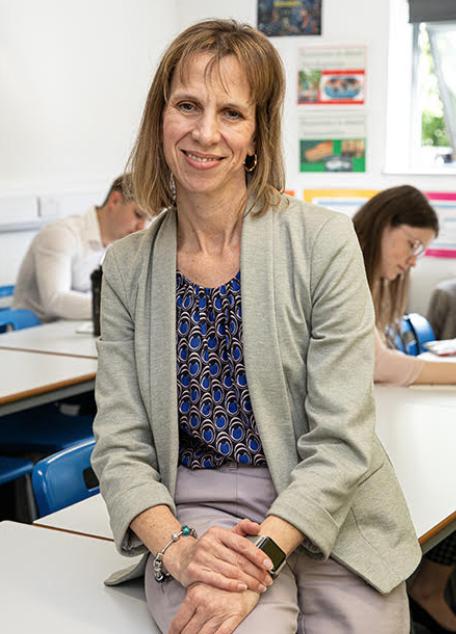
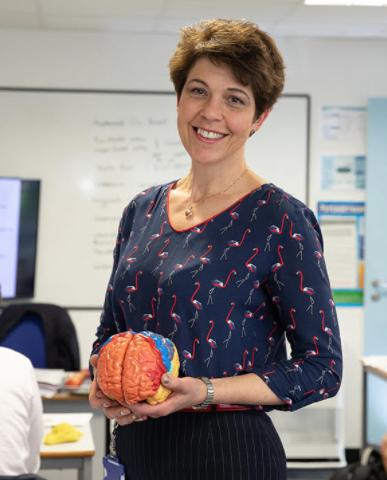
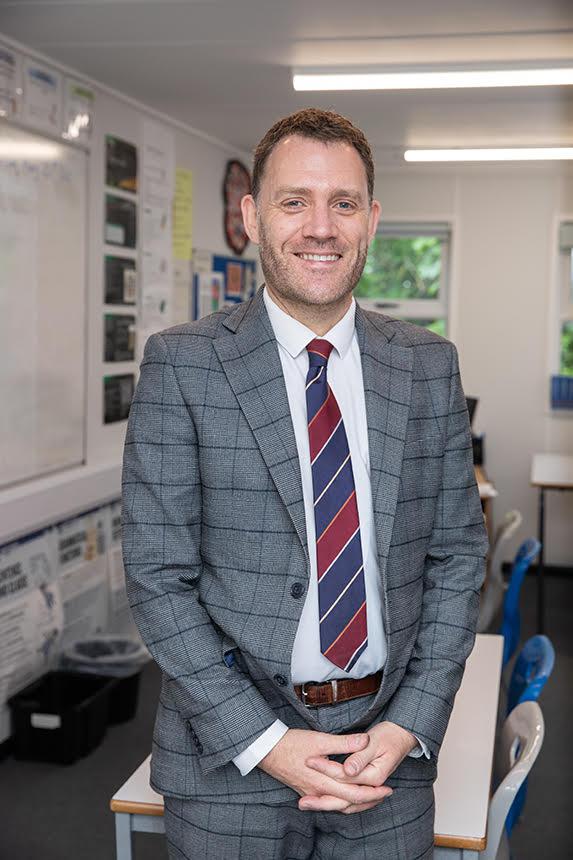
If you have further questions, we are happy to help.
Mrs Victoria Liggett Mr Sam Cotsford Mrs Mimi McNally Director of the Sixth form Head of Futures and UCAS UCAS team and Head of applications victoria liggett@claremontschool co uk sam cotsford@claremontschool co uk to institutions outside UK mimi mcnally@claremontschool co uk